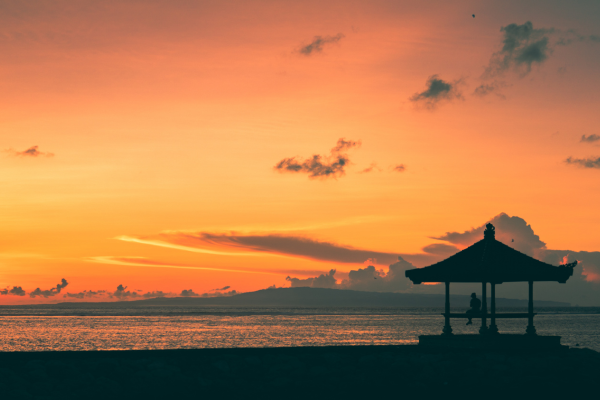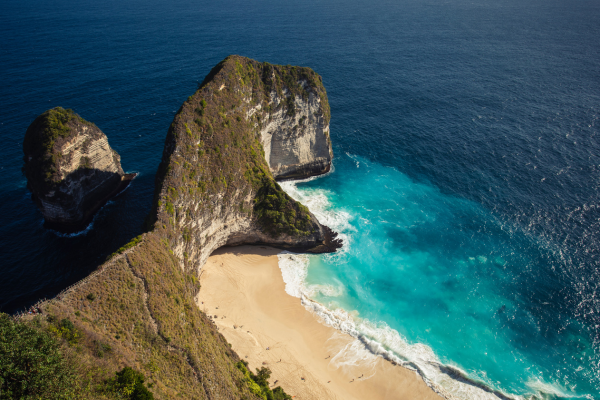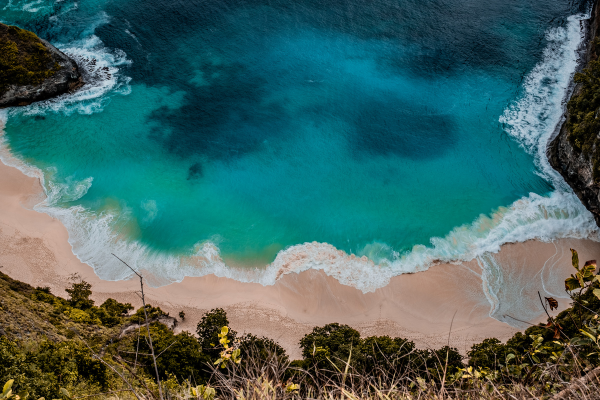Before setting foot in Bali, I found myself repeatedly asking, Is Bali safe? Countless travel forums, news reports, and even friends had painted a mixed picture of this famous island. Some raved about its beauty and warm hospitality, while others warned of petty crime, health risks, and tourist-targeted scams.
My biggest concerns revolved around three key areas:
- Crime: Stories of bag snatchings, pickpocketing, and occasional tourist scams made me wonder how safe it was to explore freely.
- Health: Reports of food poisoning (often called “Bali Belly”), dengue fever, and the necessity of travel vaccinations raised some red flags.
- Scams: From overpriced taxi rides to fake rental damages, I read multiple accounts of unsuspecting travelers losing money in avoidable situations.
Despite these worries, my curiosity won. With millions of tourists visiting Bali every year, I figured the risks might be manageable with the right precautions. I wanted to experience its stunning landscapes, rich culture, and vibrant energy firsthand. But the question remained: Is Bali safe? I was about to find out.
My First Impressions: Is Bali Safe for Tourists?

As soon as I landed at Ngurah Rai International Airport, my first thoughts were still circling around one question: Is Bali safe? The airport itself was well-organized, and immigration was a smooth process. Security personnel were present, and I didn’t experience any pushy touts or aggressive vendors—something I had been warned about.
My first interactions with locals were surprisingly warm. From the airport staff to the taxi driver who took me to my accommodation, everyone was friendly and welcoming.
Unlike some travel horror stories I had read, I wasn’t overcharged for my ride, and the driver even gave me a few safety tips for my stay.
Walking around the streets of Canggu and Seminyak on my first evening, I immediately noticed a laid-back atmosphere. Tourists and locals mingled at cafes, families strolled along the beach, and the overall energy felt positive.
That being said, I did spot a few potential safety concerns—motorbikes weaving through traffic at high speeds and a couple of travelers clutching their bags tightly, possibly wary of pickpockets.
Still, my first impression was reassuring. Is Bali safe? At first glance, it felt no more dangerous than any other popular tourist destination. But I knew I had more to discover.
Also Read: Solo Female Travel in Sri Lanka: Travel Tips and Advice
Navigating Bali Alone: Is Bali Safe for Solo Travelers?

Traveling solo in Bali was something I had mixed feelings about. I had read both glowing reviews from solo travelers and cautionary tales about scams and theft. Naturally, I kept asking myself, Is Bali safe for solo travelers?
From the moment I set out on my own, I felt a sense of freedom. I explored bustling areas like Ubud and Seminyak, walked through local markets, and even rode a scooter along Bali’s scenic roads. For the most part, I felt safe. The locals were kind, and fellow travelers were easy to connect with, making solo travel less isolating than I had expected.
However, I did encounter moments that made me more cautious. Walking alone at night in quieter areas felt a bit uneasy, especially when I noticed dimly lit streets and stray dogs.
I also met a few tourists who had fallen victim to bag snatching, particularly in places like Kuta and Canggu, where motorbike thefts were more common.
To stay safe, I followed some key precautions:
- Avoiding isolated streets at night – I opted for well-lit, busy roads whenever possible.
- Using official transportation – I stuck to Blue Bird taxis or ride-hailing apps like Grab instead of unmarked vehicles.
- Keeping valuables secure – I carried a crossbody bag and avoided flashing expensive items like my phone or camera in crowded areas.
- Trusting my instincts – If a situation didn’t feel right, I removed myself from it immediately.
So, is Bali safe for solo travelers? In my experience, yes—with the right precautions. Like anywhere else, awareness and common sense go a long way in ensuring a smooth and enjoyable trip.
Dealing with Scams: Is Bali Safe from Tourist Traps?
Before visiting, I had read about various tourist scams in Bali, from overpriced taxi rides to sketchy money exchange services. This made me wonder, Is Bali safe from tourist traps? While I didn’t fall victim to any major scams, I did experience a few tricky situations that reinforced the need to stay cautious.
The Scams I Encountered & How I Handled Them
- Inflated Taxi Fares – At the airport, some drivers quoted me ridiculously high prices for a short ride. Instead of negotiating, I used the Blue Bird app (Bali’s most reliable taxi service) or Grab for fair, metered fares.
- Shady Money Exchange Booths – Some currency exchange spots offered attractive rates but used sleight-of-hand tricks to shortchange customers. I avoided them and only exchanged money at authorized banks or ATMs.
- “Broken” Rental Scams – I met a traveler who rented a scooter only to be charged for pre-existing scratches. To avoid this, I took photos and videos of the rental before leaving the shop.
- Temple and Bracelet Scams – At popular tourist spots, I encountered a few individuals aggressively offering free bracelets or claiming I needed to pay a “mandatory” donation. A firm but polite “No, thank you” worked just fine.
My Best Advice to Avoid Tourist Traps
- Use official taxis or ride-hailing apps instead of negotiating with street taxis.
- Exchange money at banks or reputable exchange offices (avoid too-good-to-be-true rates).
- Double-check rental agreements and document any existing damage before renting bikes or surfboards.
- Be cautious of “free” gifts—if someone offers something for free, there’s usually a catch.
So, is Bali safe from scams? Not entirely, but with awareness and a few smart precautions, avoiding them is easy. Most locals are kind and honest, but like any major tourist destination, a few bad actors exist.
Adventure Activities: Is Bali Safe for Thrill-Seekers?

Bali is a paradise for adventure lovers, offering everything from surfing and diving to volcano hikes and ATV rides. But before diving into these experiences, I kept asking myself: Is Bali safe for thrill-seekers?
My Experience with Adventure Activities
- Surfing in Canggu – Surfing is a must in Bali, but the waves can be unpredictable. I took lessons from a reputable surf school, and the instructors ensured we stayed within safe zones. However, I saw a few independent surfers struggle with strong currents.
- Hiking Mount Batur at Sunrise – This active volcano hike was breathtaking, but the early morning darkness made the climb tricky. I chose a licensed guide, which was a smart move because I saw some tourists struggling without one.
- Diving in Nusa Penida – The underwater world around Bali is stunning, but Nusa Penida’s currents can be extremely strong. My dive shop followed all safety protocols, but I heard stories of inexperienced divers getting caught in the drift.
- White Water Rafting in Ubud – This was pure fun, and the guides were professional. Helmets and life jackets were mandatory, and I never felt unsafe.
Were the Tour Operators Reliable?
Most adventure companies I booked with were well-reviewed and professional. However, I did come across a few operators that seemed careless about safety—like renting out motorbikes without helmets or offering scuba trips with outdated equipment.
Any Close Calls?
The only moment that made me nervous was during a scooter ride through Bali’s winding roads. Traffic rules are loosely followed, and some tourists underestimate how chaotic it can get. I quickly learned that if you’re not comfortable riding a scooter, it’s safer to hire a driver.
Yes, but only if you choose the right operators and understand your own limits. Always check reviews, ask about safety procedures, and don’t take unnecessary risks. Bali is an adventurer’s dream—but safety should always come first.
Also Read: Worst Time to Visit Maldives: A Comprehensive Guide to Avoid the Downside
Health and Hygiene: Is Bali Safe for Avoiding Bali Belly?
Before arriving in Bali, I had heard plenty of warnings about Bali Belly—the infamous traveler’s diarrhea that affects many visitors. So naturally, I wondered, Is Bali safe when it comes to food and hygiene?
My Experience with Food Safety
I was extra cautious with what I ate, but I still had a close call. While enjoying street food in a local market, I noticed vendors handling money and food with the same hands—something I’d been warned about.
I stuck to places with high turnover, where the food was freshly cooked. Luckily, I avoided Bali Belly, but I met plenty of travelers who weren’t as lucky.
How to Avoid Food-Related Illness:
- Eat at busy warungs (local restaurants) where food is cooked fresh.
- Avoid pre-cut fruits and salads unless you’re sure they were washed in clean water.
- Use hand sanitizer before eating, especially when handling street food.
Drinking Water Concerns
Bali’s tap water is not safe to drink. I only drank bottled or filtered water and even used bottled water to brush my teeth. Ice at most restaurants and hotels is safe since it comes from government-certified suppliers, but I always double-checked.
Medical Facilities & Pharmacies: My Experience
I had to visit a pharmacy after a minor stomach issue (likely from an unfamiliar spice). Thankfully, Bali has many Apotek (pharmacies) stocked with Western and local medicines. If things had been worse, I felt reassured knowing that international-standard hospitals like BIMC and Siloam Hospitals were available for emergencies.
Yes, but only if you take precautions. Bali Belly is common, but avoidable with smart choices. Is Bali safe for hygiene-conscious travelers? With bottled water, good food choices, and proper hygiene, the risk is much lower.
Exploring at Night: Is Bali Safe After Dark?
Bali has a vibrant nightlife, from beach clubs in Seminyak to laid-back bars in Ubud. But before heading out, I kept asking myself: Is Bali safe at night? I had read about petty crime and scams, so I stayed alert while exploring after dark.
My Experience Going Out at Night
I visited a few popular nightlife spots, including Finns Beach Club in Canggu and La Favela in Seminyak. The atmosphere was lively, and I never felt unsafe inside. However, I did notice that some clubs had aggressive promoters pushing drinks, and I heard stories about spiked beverages. To be cautious, I always watched my drink and stuck to reputable bars.
Taxis and Walking at Night
I avoided walking alone at night, especially in less crowded areas. Some streets in Bali have poor lighting and stray dogs, which made me uneasy. Instead, I relied on Blue Bird taxis or Grab to get back to my accommodation. However, I did hear about “fake” Blue Bird taxis overcharging tourists, so I always booked through the official app.
Areas I Avoided and Why
- Kuta at night – While Kuta is a famous party hub, it has a reputation for pickpocketing and aggressive street vendors. Some travelers also reported scams involving bar tabs or drink spiking.
- Quiet, unlit streets – Whether in Canggu or Ubud, I avoided shortcuts or alleys with little foot traffic at night.
- Drunk motorbike rides – I saw some tourists attempting to ride scooters after a night out—a bad idea given Bali’s chaotic traffic.
For the most part, yes—as long as you stay aware. Stick to well-lit, busy areas, use trusted transport, and keep an eye on your belongings. Is Bali safe for nightlife? It can be, but smart choices make all the difference.
Final Thoughts: Is Bali Safe Based on My Experience?
After experiencing Bali firsthand, I can confidently say that yes, Bali is generally safe—but like any travel destination, it comes with risks that require awareness and smart decision-making.
Despite my initial concerns, Bali’s stunning landscapes, welcoming locals, and unique culture made it an unforgettable destination. I never felt truly unsafe, and the minor inconveniences I faced were manageable with the right precautions.
My biggest safety takeaways from the trip were that petty crime exists but is avoidable with vigilance, traffic can be unpredictable (so renting a scooter isn’t for everyone), and food and water safety require caution to prevent illnesses like Bali Belly. Scams are common, but knowing about taxi overcharges, rental disputes, and shady money exchanges helped me avoid unnecessary losses.
As for nightlife, Bali offers amazing experiences, but staying aware of my drink, using safe transportation, and avoiding overly persistent vendors kept things enjoyable.
For anyone planning a trip to Bali, my top safety tips would be to use Blue Bird taxis or Grab for transportation, book activities with reputable tour operators, stay mindful of belongings in crowded areas, exchange money only at licensed vendors, drink bottled or filtered water, and trust your instincts if something feels off.
Is Bali safe? Yes, as long as you stay informed and take reasonable precautions. With the right mindset, you can fully enjoy everything this beautiful island has to offer!
One thought on “Is Bali Safe? Lessons from My Personal Trip”